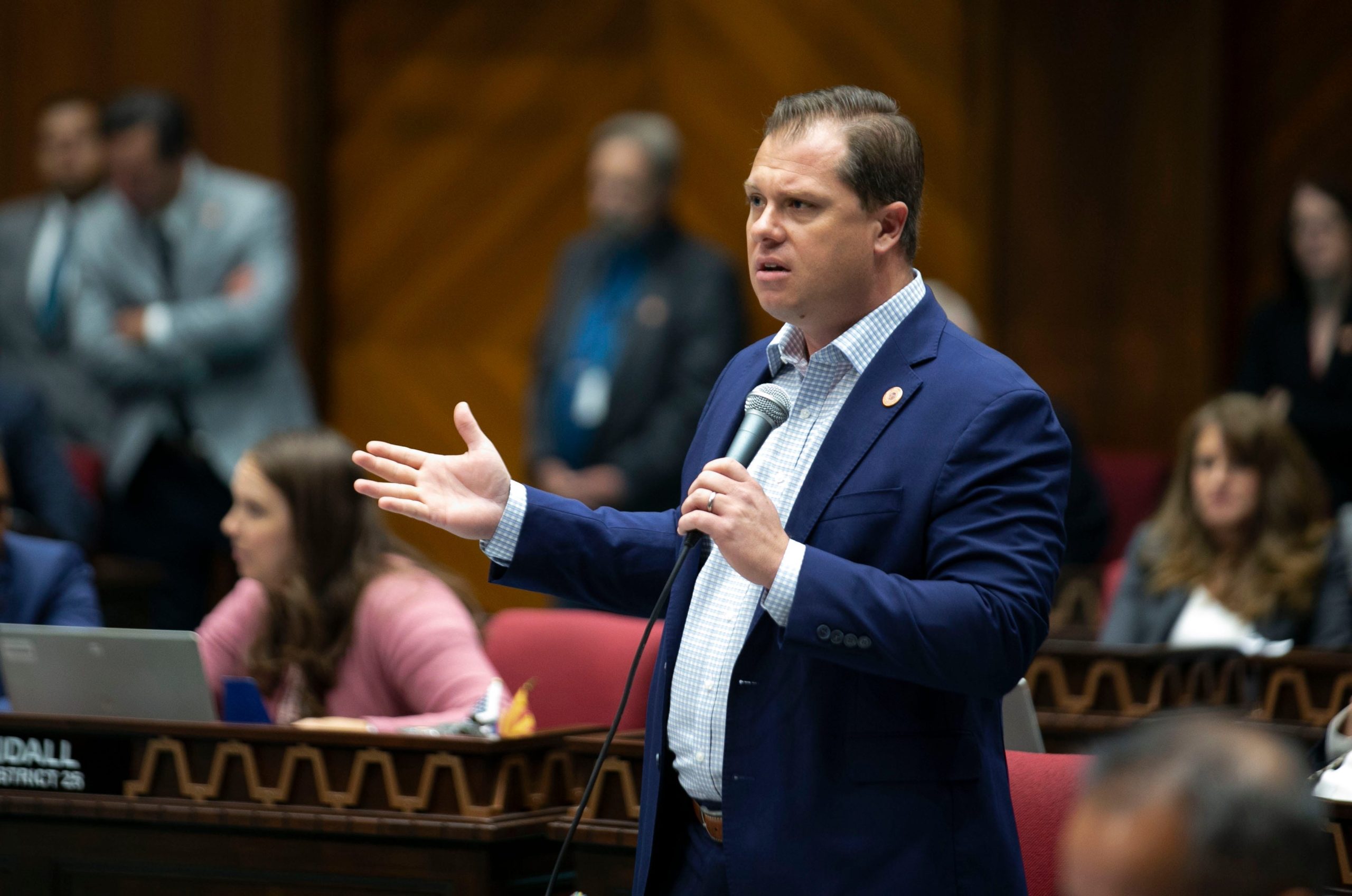The recent election of Arizona state Senator Jake Hoffman as the national committeeman for the Republican National Committee (RNC) has sparked controversy in light of his indictment in the election subversion case.
Hoffman, along with 17 others, including prominent figures like Mark Meadows and Rudy Giuliani, faces allegations related to efforts to overturn President Joe Biden’s victory in the state.
Hoffman’s election to the RNC position comes at a time when the Republican Party is grappling with internal divisions over the 2020 election results. His victory raises questions about the party’s stance on election integrity and its willingness to address allegations of wrongdoing within its ranks.

Senator Jake Hoffman (Credits: AZCentral)
Despite the indictment and ongoing legal proceedings, Hoffman has vehemently denied any wrongdoing. He has expressed his commitment to serving in his new role and has pledged to prioritize Arizona’s interests within the RNC.
The election of Hoffman, along with the expulsion of former state Representative Liz Harris, who was involved in questioning the 2020 election results, underscores the deepening divide within the Arizona Republican Party.
Some observers argue that these developments signal a growing embrace of election denialism among party leaders in the state.

Arizona Sen. Jake Hoffman (Credits: Truthout)
Hoffman’s defense of his innocence and his determination to fight the charges against him highlight the complex legal and political dynamics at play. As the case reveals, it remains to be seen how Hoffman’s legal troubles will impact his position within the RNC and the broader Republican Party.
The controversy surrounding Hoffman’s election underscores the ongoing debate within the Republican Party over the legitimacy of the 2020 election and the party’s direction moving forward.
As the party grapples with these internal tensions, the outcome of Hoffman’s legal case and his continued involvement in party affairs will be closely watched.























